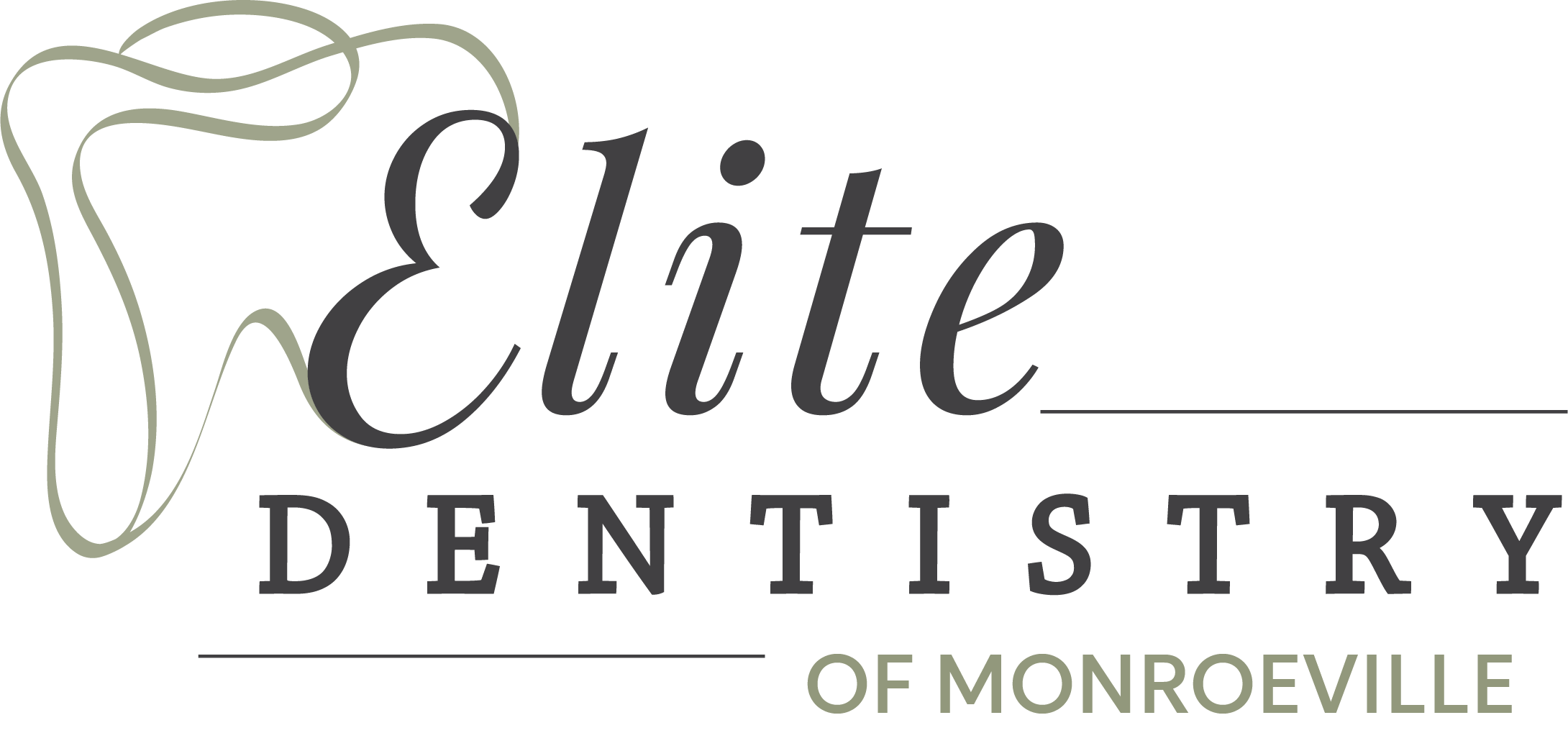The Scoop on Sealants: Are They Worth It?
Dental Sealants for Adults
Elite Dentistry of Monroeville is here to give you the complete scoop on dental sealants for adults. They offer powerful protection against cavities for people of all ages, which is why so many people turn to dental sealants. In our guide, we’ll explore what they are, how they work, and whether they’re a worthwhile investment in oral health. We’re here to help you make an informed and empowered decision about protecting your smile.

What Are Dental Sealants?
Dental sealants are thin, protective coatings applied to the chewing surfaces of back teeth or molars. These teeth have deep grooves and pits, known as fissures, which are prime spots for food particles and plaque to get trapped. A sealant flows into these depressions and hardens, creating a smooth, sealed barrier. This shield blocks out plaque and food, making the tooth surface easier to clean and significantly reducing your risk of developing cavities in these vulnerable areas.
Who Can Benefit From Dental Sealants?
While it’s most common for children to receive dental sealants, many adults can benefit from them. Sealants offer added protection for molars, helping to prevent cavities and preserve natural teeth. Here’s who can benefit from dental sealants:
- Adults with Deep Grooves—You may be a good candidate if your molars have deep pits and no fillings or crowns. These grooves are hard to clean and prone to decay.
- Those Prone to Cavities—Adults with a history of cavities can use sealants as an extra defense. They create a barrier that blocks out plaque and food particles.
- Tooth Structure Protection—Sealants help prevent more invasive treatments like fillings and crowns. They’re a proactive step toward long-term oral health.
Dental Sealings vs. Fillings: What’s the Difference?
The main difference in dental sealants vs. fillings is that sealants protect, while fillings restore. A dental sealant is a proactive measure applied to a healthy tooth to prevent a cavity from forming. It seals off vulnerable areas before decay has a chance to start. In contrast, dental fillings are a reactive treatment used to repair a tooth after a cavity has developed. During a filling procedure, the dentist removes the decayed portion of the tooth, then fills it with restorative material.
How Long Do Dental Sealants Last?
Dental sealants can protect your teeth for up to 10 years with proper care. Their longevity depends on several factors, including your chewing habits and what you eat. Chewing on ice or hard candies can chip or wear them down more quickly. During regular checkups, your dental team will thoroughly examine your sealants. If a sealant does show signs of wear, it can be easily repaired or replaced. This durability makes them a long-lasting and cost-effective tool in the fight against dental decay.
Dental Sealants: Pros and Cons
Like any dental treatment, it’s essential to understand the benefits and limitations of dental sealants. Here’s a quick overview of their pros and cons:
- Highly Effective Cavity Prevention—Sealants can reduce the risk of molar decay by up to 80%. They act as a protective barrier over deep grooves where plaque often builds up.
- Quick and Painless Application—Your dentist can complete this noninvasive procedure in just one visit. You won’t need to worry about drilling or anesthesia.
- Cost-Effective Protection—Sealants are more affordable than treatments like fillings or crowns. They’re a wise preventive investment in your long-term dental health.
- Not Permanent and Limited Coverage—Sealants may wear down and need reapplication. They only protect chewing surfaces, so daily brushing and flossing are still essential.
What Do Dental Sealants Look Like?
If you’re curious about how dental sealants affect your teeth, the answer is: not much visually, but a lot in terms of protection. Sealants are discreet while offering powerful cavity prevention. Here’s what dental sealants look like:
- Nearly Invisible Appearance—Sealants come from clear, white, or slightly tinted resin. After application, they blend in with your natural tooth color.
- Thin and Smooth Texture—The liquid resin flows into grooves before hardening. It creates a smooth surface that makes teeth easier to clean.
- Minimal Sensation Changes—You might initially notice a slight difference in your tongue. However, most people adjust within a day or two.
- Protection Without Cosmetic Change—Your teeth will look the same after application. The real change is the additional defense against decay in hard-to-reach areas.
Are Dental Sealants Safe? Dental Sealant Myth-Busting
Safety is a common concern regarding dental treatments, and dental sealants are no exception. Fortunately, extensive research confirms they are safe and highly effective in preventing tooth decay. Here’s what you should know:
- Backed by Decades of Research—Dental sealant materials have been studied for years and have the American Dental Association’s approval. They have wide usage and excellent safety records.
- Minimal BPA Concerns—Some sealants contain trace amounts of bisphenol A (BPA). However, the levels are extremely low. You encounter more BPA from touching receipts and using cosmetics.
- Benefits Far Outweigh Risks—Sealants provide significant cavity protection. For most patients, the preventive value surpasses minimal and temporary BPA exposure.
Are Dental Sealants Worth It? Here’s the Bottom Line
Dental sealants are a wise, cost-effective choice for protecting your smile. They offer long-term benefits with minimal effort or discomfort. Here’s why dental sealants are worth it:
- Powerful Cavity Prevention—Sealants protect the deep grooves of your molars where decay often starts. This protection helps significantly reduce your risk of cavities.
- Saves Time and Money—Preventing decay means fewer fillings, crowns, or other treatments down the line. That translates to less time in the chair and lower costs.
- Easy and Painless Procedure—Dental sealant application is quick, noninvasive, and requires no numbing. It’s an easy addition to routine dental care.
- Supports Lifelong Oral Health—Dental sealants help preserve natural teeth for the long run. They’re a proactive step toward a healthy, confident smile at any age.
We’re Ready to Protect Your Smile With Dental Sealants
Prevention is the crucial foundation of excellent dental care, so let our Elite Dentistry of Monroeville team give you protection with dental sealants for adults in Monroeville, PA. We can assess your teeth and determine if dental sealants are the right choice for you. You can trust us to be your dental health partner and keep your smile healthy and bright for years. So, if you’re ready to add more smile protection, we can help. Contact us today to schedule a consultation with our dental team.
Frequently Asked Questions About Dental Sealants
If you’re considering dental sealants, you may have questions about the procedure, effectiveness, and cost. Here are some quick answers to help you understand what to expect:
- Does getting sealants hurt? — No, the process is painless and noninvasive without drilling or numbing. Your dentist will clean and condition your tooth before adding the sealing material and using a special light to harden it.
- Can you put a sealant on a tooth with a small cavity? — In some cases, your dentist can place a sealant over a very early stage of decay to stop its progression. However, your dentist will determine this on a case-by-case basis.
- How much do dental sealants cost? — The cost of sealants is significantly less than that of a filling. Many dental insurance plans cover sealants for children, and some cover adults.
